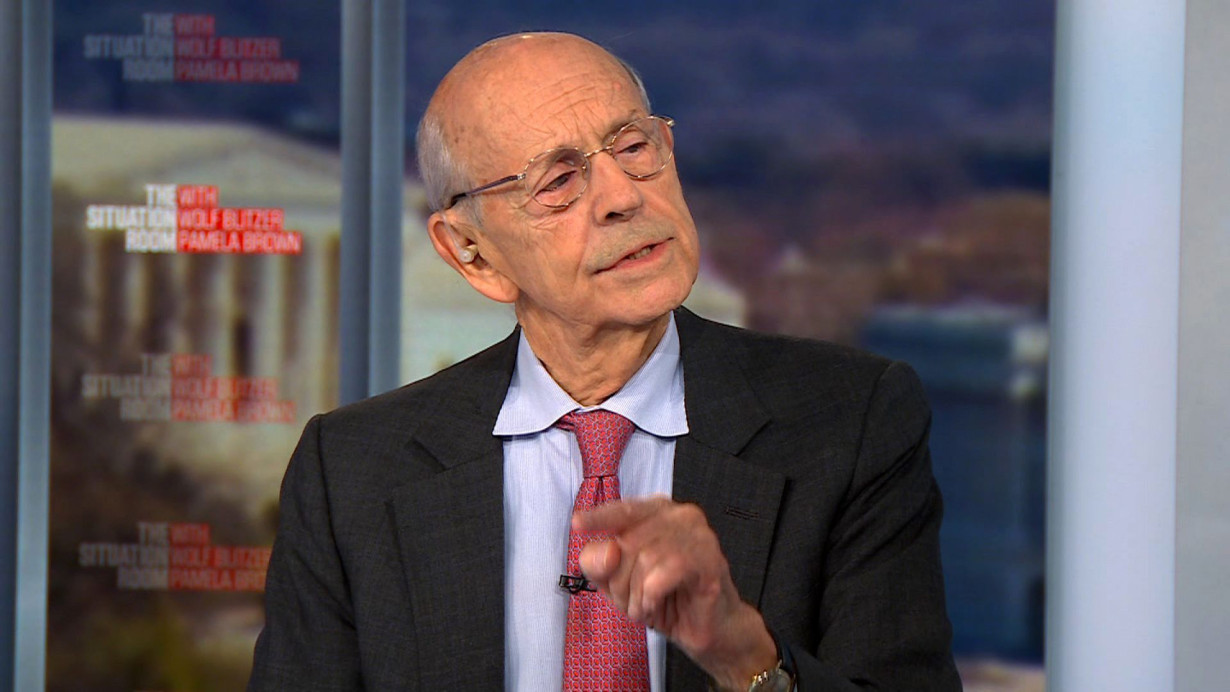(CNN) — When schools in Kentucky closed for several days last month due to severe flooding, students suddenly began showing up at the Bullitt County Public Library.
They had come for the internet.
To pay for those high-speed connections that some students lacked at home, the county library – like many others across the country – has relied on a federal program that is now poised for a major overhaul courtesy of the Supreme Court.

“Internet access is a luxury,” said Tara O’Hagan, the library’s executive director. “In Bullitt County, there’s literally a digital divide.”
The case, which the justices will hear on Wednesday, could wind up costing libraries, schools and hospitals billions.
At a time when nearly 10% of US households do not have access to broadband internet, one of the leading programs to bridge the divide has been caught up in a broader and decades old separation-of-powers fight over federal agencies. Those cases have found purchase on the 6-3 conservative Supreme Court, which has repeatedly limited the ability of the federal bureaucracy to act absent congressional approval.
A conservative “consumer awareness group” is challenging the $7 billion Universal Service Fund, which Congress created in 1996 to offset the cost of phone and internet service for low-income Americans.

It’s a system that critics say is a “bureaucrat’s dream” and a “nightmare for the Constitution.”
To pay for programs like E-Rate, which O’Hagan’s library relies on, Congress requires telecommunications companies to chip billions of dollars into the fund, a cost that is usually passed on to customers. Critics say the system is an indirect tax levied by the Federal Communications Commission and violates what’s known as the nondelegation doctrine – the idea that Congress can’t delegate its power to federal agencies.
Making matters worse, those critics say, the FCC essentially outsources the administration of the fund to a private company.
“Nobody wants to take responsibility for taxes,” said Trent McCotter, an attorney at the Boyden Gray law firm who will argue against the government on Wednesday.

Paying for the program through regular congressional spending bills, McCotter told CNN, would be better for schools and libraries in the long run.
“The Universal Service Fund is facing a widely recognized death spiral of ever-higher rates, with dwindling returns – which will soon implode the program,” he said.
But others say pervasive gridlock on Capitol Hill would jeopardize programs like E-Rate and Lifeline that connect millions of Americans to the internet.
“The impact would be most pronounced and quickest on low-income folks,” said John Heitmann, counsel for the National Lifeline Association, a group that represents companies that connect about 8 million households with phone and internet service subsidized through the fund. “They don’t have the megaphone that corporations have.”
A decision is expected by the end of June.
Curbing the ‘administrative state’
The Supreme Court’s conservative majority has in recent years hacked away at the power of federal agencies to act on their own, most recently in a 6-3 decision last year that overturned a 1984 precedent requiring courts to give deference to agency regulations in many circumstances. Federal agency power expanded dramatically after the New Deal, Chief Justice John Roberts wrote for the majority, and courts had veered too far from exercising independent judgment about whether an agency had violated the law.
That decision came on the heels of a blockbuster ruling in 2022 that embraced the so-called major questions doctrine, which bars an agency from issuing a rule with major economic or political impacts absent explicit approval from Congress.
The “nondelegation doctrine,” which blocks Congress from delegating its authority to agencies – and may also bar agencies from delegating their authority to private entities – is the next target in that campaign.
The high court has not invoked the nondelegation doctrine since the 1930s. It has instead since permitted Congress to delegate authority under certain conditions.
But conservative groups in particular have argued the permissiveness has perverted separation-of-powers principles, allowing government agencies to take the lead on difficult choices they say should be left to elected lawmakers.
That argument has drawn nods of approval from at least four conservative justices.
Many of the recent appeals dealing with the power of federal agencies have taken on a political sheen, with conservative groups challenging policies embraced by the Biden administration – including student loan forgiveness, environmental regulations and Covid-19 restrictions.
But the politics of this case, FCC v. Consumers’ Research, are more complicated.
The Biden administration appealed an adverse ruling from the 5th US Circuit Court of Appeals and the Trump administration hasn’t shown any sign of deviating course. The Justice Department warned the court in a brief this month that “Congress has relied on this court’s longstanding” approach to the issue to enact legislation authorizing agencies to police unfair competition, oversee the securities industry and ensure the safety of food and drugs.
Some of the programs funded through the Universal Service Fund have faced controversies and even some of those advocating for them acknowledge that McCotter has a point about the fund’s long-term viability.
Still those advocates are hopeful that President Donald Trump won’t try to undermine the programs, which have a significant impact in rural communities that supported his reelection.
When Trump announced a new FCC commissioner in a social media post in January, he noted that the agency would work to cut regulations, protect free speech and “ensure every American has access to affordable and fast internet.” The remark, though unspecific, was not lost on advocates hoping to bolster the programs.
And Vice President JD Vance, a former senator from Ohio, was a leading supporter of a similar initiative in Congress, the Affordable Connectivity Program.
That program, though, serves as a cautionary tale for advocates for expanding digital access: Congress let its funding lapse last year.
Disconnecting rural communities?
Librarians and school officials who spoke with CNN are focused on the impact – and their budgets – far more than the politics.
O’Hagan’s said the library spends about $4,000 a month to provide internet to its five branches. That’s an 80% reduction on what it would normally cost – a difference that is covered by E-Rate, one of the programs at issue in the case.
“Without that support, we wouldn’t be able to provide internet access to our most susceptible community members,” she said.
Chase Christensen, superintendent of the Sheridan County School District #3 in northern Wyoming, also relies on an E-Rate program, which pays about 20% of the cost of managing the school’s internal internet network.
“It’s picking up the big chunk and making it a little bit more affordable,” Christensen said. “We can spend those dollars in the classroom instead of spending them on network infrastructure.”
The E-Rate program provided about $3.26 billion in discounts for interconnectivity in 2024, according to a brief supporting the FCC filed by the School Superintendents Association, the National Association of Secondary School Principals and other groups. More than 106,000 schools benefited over the past two years. Sometimes schools use those resources in less than obvious ways.
“A lot of them are using the internet to power security systems or they’re using their internet to control the environment,” said Noelle Ellerson Ng, with the superintendent’s group. “That’s not even about teaching and learning. It’s just about getting kids to schools and getting schools ready for kids.”
Danielle Perry, chief compliance officer for a California-based company called TruConnect, said the Lifeline program helps low-income Americans search for better jobs, attend telehealth visits and stay connected with family – in other words, the same things everyone uses the internet for.
“It’s something that most of us take for granted – never think about it,” she said. “But these are people who just desperately need this program.”
The-CNN-Wire
™ & © 2025 Cable News Network, Inc., a Warner Bros. Discovery Company. All rights reserved.

 Trump has begun another trade war. Here's a timeline of how we got here
Trump has begun another trade war. Here's a timeline of how we got here
 Canada's leader laments lost friendship with US in town that sheltered stranded Americans after 9/11
Canada's leader laments lost friendship with US in town that sheltered stranded Americans after 9/11
 Chinese EV giant BYD's fourth-quarter profit leaps 73%
Chinese EV giant BYD's fourth-quarter profit leaps 73%
 You're an American in another land? Prepare to talk about the why and how of Trump 2.0
You're an American in another land? Prepare to talk about the why and how of Trump 2.0
 Chalk talk: Star power, top teams and No. 5 seeds headline the women's March Madness Sweet 16
Chalk talk: Star power, top teams and No. 5 seeds headline the women's March Madness Sweet 16
 Purdue returns to Sweet 16 with 76-62 win over McNeese in March Madness
Purdue returns to Sweet 16 with 76-62 win over McNeese in March Madness







